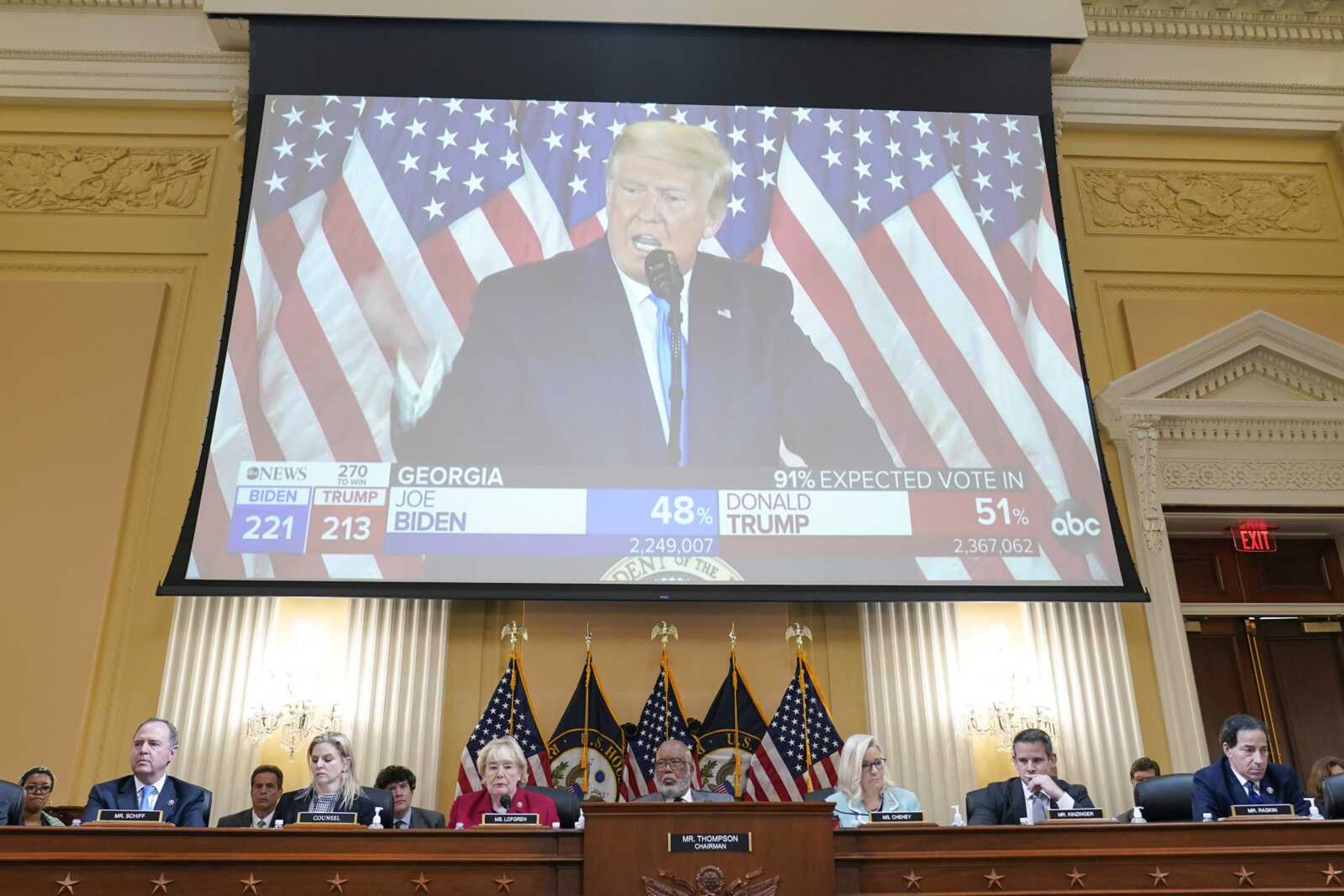1/6 panel postpones hearing with ex-Justice Department officials
WASHINGTON -- The House committee investigating the Jan. 6, 2021, riot at the U.S. Capitol has postponed a hearing that was to feature testimony from former Justice Department officials who were pressured by then-President Donald Trump to pursue his false election fraud theories...
WASHINGTON -- The House committee investigating the Jan. 6, 2021, riot at the U.S. Capitol has postponed a hearing that was to feature testimony from former Justice Department officials who were pressured by then-President Donald Trump to pursue his false election fraud theories.
The hearing had been scheduled for today, but the committee on Tuesday morning said it had been delayed. A spokesman for the panel attributed the postponement to "a number of scheduling factors, including production timeline and availability of members and witnesses."
Rep. Adam Kinzinger, a Republican member of the committee, said on Twitter the hearing had been moved to next week as a way to "space out" the testimony surrounding the insurrection, when crowds of Trump supporters stormed the Capitol and interrupted the certification of President Joe Biden's victory.
The committee has already held two hearings, including a primetime one last week that featured never-before-seen video of extremists leading the siege. Another hearing is set to take place Thursday.
The witnesses at today's hearing were to include Jeffrey Rosen, who was the acting attorney general at the time of the Capitol insurrection, as well as two other former top officials at the Justice Department, Richard Donoghue and Steven Engel. Lawyers for all three men did not immediately return messages seeking comment.
The witnesses, all of whom have since left the Justice Department, are expected to testify about how Trump sought to bend the department to his political will during the final days of his administration by urging officials to declare the election as corrupt and to aid in his efforts to challenge the results of the race won by Democrat Joe Biden.
Though the lawyers' accounts have been documented by the news media, the hearing will give the American public its most detailed glimpse of a near-revolt inside the Justice Department as Trump contemplated replacing the agency's top official with a lower-level lawyer seen as more willing to advance the president's false claims that the election was stolen. Several other senior officials warned Trump in a White House meeting that they'd resign if the leadership change occurred.
Rosen took over the department following the December 2020 departure of William Barr, who angered Trump by saying the department had not found fraud that could have affected the results of the election. Trump quickly soured on Rosen, too, after the then-acting attorney general rejected entreaties from the president and the White House to challenge the election results.
Around that time, the president was introduced by Rep. Scott Perry, a Pennsylvania Republican and ardent Trump backer, to Jeffrey Clark, a little-known assistant attorney general who postured himself as willing to advance Trump's baseless voting fraud claims.
At one point, according to testimony provided to lawmakers, Clark presented colleagues with a draft letter pushing Georgia officials to convene a special legislative session on the election results. Clark wanted the letter sent, but superiors at the Justice Department refused.
A lawyer for Clark did not immediately return a phone message on Wednesday.
Clark's support led Trump to openly contemplate naming him as acting attorney general in place of Rosen.
The situation came to a head during a tense, hours-long Jan. 3, 2021, meeting at the White House in which Engel and Donoghue told Trump they would resign from the Justice Department if Trump proceeded with his plan to fire Rosen and replace him with Clark.
Trump ultimately relented, and Rosen remained on as acting attorney general through the end of the administration.
Follow Eric Tucker at http://www.twitter.com/etuckerAP
Connect with the Southeast Missourian Newsroom:
For corrections to this story or other insights for the editor, click here. To submit a letter to the editor, click here. To learn about the Southeast Missourian’s AI Policy, click here.










